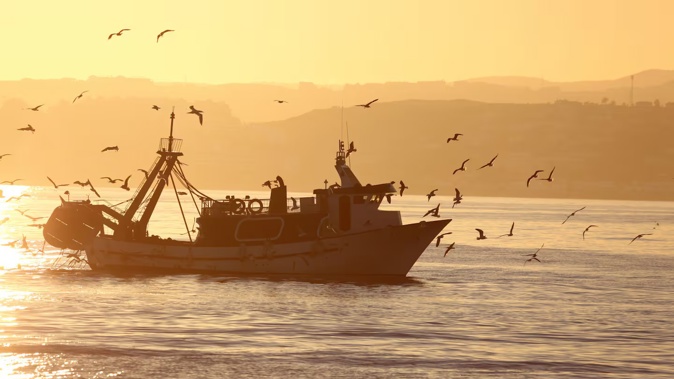
Climate change could spell millions of dollars in losses for our commercial fishing sector, with new research suggesting ocean warming could soon reach a tipping point for catch rates.
A pair of new studies highlights how gradually rising sea temperatures and marine heatwaves could have big impacts for the multi-billion-dollar industry – even if warming waters brings some benefits in the short term.
One of the papers, led by Associate Professor Hanny John Mediodia, now based at the University of the Philippines, explored links between warming and catch data on three species and fishing methods in Aotearoa.

Jack mackerel were one of three species whose catch data was analysed in a new study exploring impacts of ocean warming. Photo / Geoff Thomas
The results varied with different modelling approaches: one suggested fishers catching flatfish by set net might benefit by up to $3.2 million per degree of ocean temperature rise, while another predicted potential losses of more than $11m.
While the modelling showed catch rates for all three species appeared to initially rise with warming seas, they began to drop once temperatures hit a tipping point – at levels not much higher than today.
“Every area in the Exclusive Economic Zone (EEZ) is already managed differently,” explained study co-author Professor Ilan Noy, of Victoria University.
“However, what these results suggest is that the areas that are warmest will soon hit this inflection point and catch will decrease – that will require quota adjustments to make sure the fisheries are managed sustainably.”
Another study, led by Miloud Lacheleb of Victoria University and co-authored by Noy, looked at the impact of marine heatwave events across the EEZ over the past four decades.
The research, published online ahead of peer review, revealed widespread occurrence of moderate and strong events, with an increasing trend since 2015.
Although moderate events could have a somewhat positive impact on fish catch – with increases ranging from 12kg to 472kg for a degree of temperature rise – severe and extreme events instead brought big drops.
“We also see that this association between marine heatwave events and fish catch is different across the EEZ, with a more pronounced negative association in the southern areas,” Noy said.
“As these events are already getting longer, stronger and more frequent already, we should be expecting a bigger adverse impact on the fisheries carrying capacity as this process continues.
“If quotas are not adjusted accordingly, this may result in unsustainable practices and eventual collapse of the fisheries.”

Victoria University's Ilan Noy.
Otago University senior economics lecturer Dr Viktoria Kahui, also a co-author of both papers, echoed those concerns.
“New Zealand has one of the largest EEZs in the world, and one of the most comprehensive quota management systems,” Kahui said.
“However, our studies show that climate change will have significant impacts on the catch of commercial fisheries.”
Seafood New Zealand chief executive Lisa Futschek said ocean warming was a “serious and very real problem” that commercial fishers were now seeing the impact of first-hand.
Futschek said fish tended to move to seek their preferred environments – as was being observed with snapper populations increasing in numbers in the south.
“In future, our Quota Management System may struggle to keep up, unless we stay across the changes and respond fast to recognise that fish populations are changing.”
Futschek added that climate change-driven ocean heating didn’t just hit mobile fish populations, but the whole ocean ecosystem.

Ocean heatwaves are growing longer, stronger and more frequent - with the waters around New Zealand proving a global hot-spot. Image / Niwa
“Mussels will be impacted by ocean acidification which can damage their shells [and] we may see the arrival of more invasive pest species that threaten our existing fish populations.”
The studies come as Stats NZ this month reported how ocean and coastal waters around New Zealand recently reached their warmest annual temperatures on record.
Each decade since the early 1980s, ocean surface temperatures have climbed by 0.16C to 0.26C, while coastal waters have warmed by 0.19C to 0.34C – with the biggest shift observed off the South Island’s east coast.
At the same time, marine heatwaves have become more common: in 2022, the Tasman Sea was engulfed in one for more than half the year, while an event off the North Island’s West Coast nearly proved year-long.
“Things are getting hotter because of climate change – we knew that already – but the accelerating pace of warming of the oceans around New Zealand is surprising,” Niwa principal scientist Dr Matt Pinkerton said.
“The rate of ocean surface warming round New Zealand is now outstripping the global average threefold in some areas and twice on average.”
That, he said, challenged the narrative that New Zealand was well placed to avoid the worst that climate change would bring.
Jamie Morton is a specialist in science and environmental reporting. He joined the Herald in 2011 and writes about everything from conservation and climate change to natural hazards and new technology.
Take your Radio, Podcasts and Music with you









